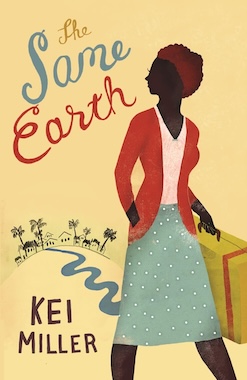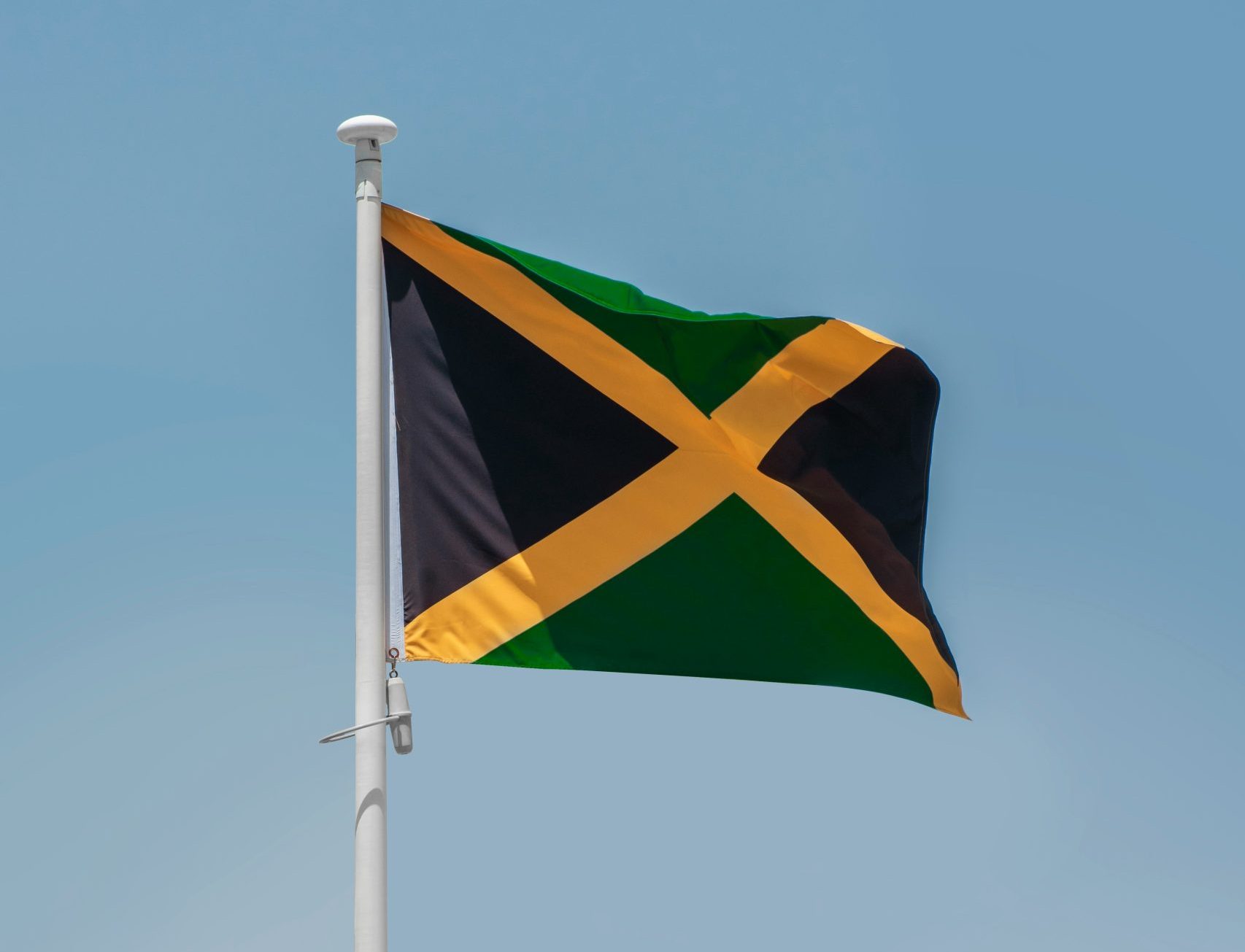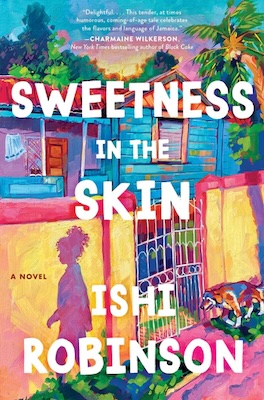Growing up in Jamaica, my family and I went to the beach every Sunday, eating fried fish and fluffy, airy dumplings, swimming in water so crystal clear it looked like diamonds sparkled on it. We’d come home sunburned and windswept, and we’d sleep well that night, our energy completely sapped by the sun.
The next day, we’d get back to work. Back to boring insurance jobs (no offense to those with boring insurance jobs), law firms, doctor’s offices, PR companies. Government jobs, cleaning jobs, secretarial jobs, teaching jobs. Some would go to the universities. Schoolers would wear their uniforms and go to school. All of us would sit in traffic, sweating and cursing in cars or busses, until we got where we needed to go. Yes, we live in paradise, but paradise doesn’t run on saltwater.
I know that Jamaica is a beach vacation for most of the world and it is truly an amazing one. But we are more than just a beach for tourists to lay on. Jamaica has a rich history and culture, and we’ve made incredible contributions to the world.
When I think about the things that I miss about Jamaica, I never think of the beach. I think of the ever-present music, noise and movement; the fruit stall sellers and the pan chicken man, from whom you can buy delicious BBQ chicken, but only after 2 am. I think of the crazy way people drive around Kingston. The smell after it rains. How we once held the Guinness world record for most churches per capita, but we still dance half naked in the street during carnival, or at the dance hall.
Sometimes I take off my rose-tinted glasses, and I think about the way we’ve held on to colonial structures, the sharp divide between classes—who’s “uptown,” who’s “downtown,” and what that means for the trajectory of your life. How people will ask who your father is, and who his father is, to see if you’re worth their time. How the lightness of your skin can take you places, and the darkness of your skin can hold you back.
In my novel, Sweetness in the Skin, I explore these themes of classism, colorism, and colonialism through the trials and tribulations of a young girl trying to find her place in the world. Pumkin lives with her adoring aunt, her social climbing grandmother, and her neglectful mother in the wrong part of town, but when her aunt moves to France without her, Pumkin must employ her extraordinary baking skills as she desperately tries to reunite with her.
My book shows a real Jamaica—my Jamaica, from the ‘90s, the one I grew up in—and it would sit on the shelf quite neatly with these other stories that are set in, or evoke, the spirit of the real Jamaica… beyond our beautiful beaches.

The Same Earth by Kei Miller
When Imelda Richardson’s mother dies, she returns home from England to her tiny country village in Jamaica. It is religion that holds the village in place—a common thing in Jamaica—and this particular one is run with an iron grip by the evangelical Pastor Brathwaite. In the wake of a horrible crime (Tessa Walcott’s polka dot panties are stolen right off the line!), Imelda sets up a neighborhood watch, but that proves to be too much devilry for the pastor and his devoted flock. So when the river rises up and floods Imelda’s home, they feel that God is on their side, punishing her for her evil influence. In fact, they get so riled up about it, they decide to continue God’s good work and cleanse the whole village with fire— especially the gay man’s house. This funny, heartfelt, magical realist story gives a glimpse into Jamaican village life and the role that religion plays with so many Jamaicans.
How to Say Babylon by Safiya Sinclair
Born in Montego Bay, where luxury hotels line pristine white sand beaches, Safiya Sinclair grew up in poverty, guarding herself against her father, a volatile reggae musician and strict believer in a militant sect of Rastafari. Her father keeps them practically imprisoned in the many rental homes they move around to, in order to “protect the purity” of the women and girls in the family. One of the most pervasive stereotypes about Jamaica is that we are all Rasta, or accepting of Rastafarianism, but the truth is, Rastafari have been marginalized since they first came on the scene, and not many Jamaicans really know much about them. Even today, some Jamaican schools refuse to allow Rasta children, or force them to manipulate their locks in certain ways to make them look “less Rasta.” This book is lush, verdant, gripping, startling, fierce and unflinching. I read it with a sense of desperation, willing Safiya forwards to freedom, frantic about how it would all turn out.
Black Cake by Charmaine Wilkerson
Siblings Benny and Byron reunite for their mother’s funeral and learn that she left a legacy in the form of a black cake—and a decades-old murder that turns everything they know about their family on its head. Wilkerson doesn’t explicitly say this is Jamaica but believe me, it is! The novel looks back at the history of our island and how our Chinese population ended up there. The black cake—a traditional Caribbean staple at Christmas and weddings—is the focal point around which lives ebb and flow, through happiness and disaster, and discovering that you never really know your parents’ story.
Popisho by Leone Ross
An epic, magical tale of love, community, corruption and colonialism set on an Archipelago called Popisho, inspired by the author’s homeland of Jamaica. In this bawdy, mischievous story, each resident of Popisho is gifted a (sometimes hilarious) magical ability, or “cors.” Xavier Redchoose has been anointed by the gods to make each resident one perfect meal. His long-lost love has healing powers. The corrupt governor has a shady gift, but his daughter, set to be married, hasn’t found hers yet. His son has a pretty good one, but he’s been banished. Their lives, and the lives of so many others, intertwine and collide until a “sweet” storm blows in and sets wrong things to right.
These Ghosts Are Family by Maisy Card
Stanford Solomon has a secret he’s kept for 35 years: he isn’t Stanford Solomon at all. He stole the life of his friend, who died in a tragic accident and, for once, the racism Stanford experienced in the U.K. worked in his favor. But now Stanford’s dying and he wants to set things to rights. This novel reads like several interconnected short stories about the lives of Stanford, his family, and his ancestors, and how decisions made in each era affect the ones after. We see Jamaica as it would have been during the days of enslavement; we see the country in the 1960s, the 1980s, the 2000s, and everywhere in between. We see the effects of racism, colonialism, migration, infidelity, regret. I loved this travel through time to all the Jamaicas I have never known, but hold somewhere deep in my bones.
River Mumma by Zalika Reid-Benta
When I was a child I was deathly afraid of the Rolling Calf, a Jamaican duppy (spirit) that I won’t say anything more because I still do not want it to notice me. So I was drawn to this story of Alicia, who is floundering after graduate school with no job prospects, unsure what to do with her life, when she is set on a quest by the River Mumma, the Jamaican water deity. Alicia and her two friends are plagued by other Jamaican duppies while they try and figure out how to find the River Mumma’s golden comb (including the dreaded Rolling Calf, which I must admit seems less scary on these pages than in my childhood dreams). This story is set in Toronto, but it is Jamaican through and through—the characters must connect with their Jamaican roots to achieve their goal, and Alicia is transported to Jamaica through visions that help her connect to her ancestry and history. It’s an exploration of what “home” means—whether you live on its land or carry it in your heart.
A Brief History of Seven Killings by Marlon James
This sprawling novel sweeps across decades in post-colonial Jamaica and weaves true historical facts with fiction. Centered around the attempted assassination of Jamaica’s favorite son, Bob Marley—referred to only as “The Singer” in this tome—the book follows a wide cast of characters from gangsters, politicians, lovers, and even the CIA as they navigate gang-violence and political turbulence on the island. “Tek time” (take your time) with this one: the language is dense, the characters complicated, the violence plentiful. But James’s lyrical prose is so worth it, as is the opportunity to learn about one of the most turbulent times in our island’s history.
Read the original article here

